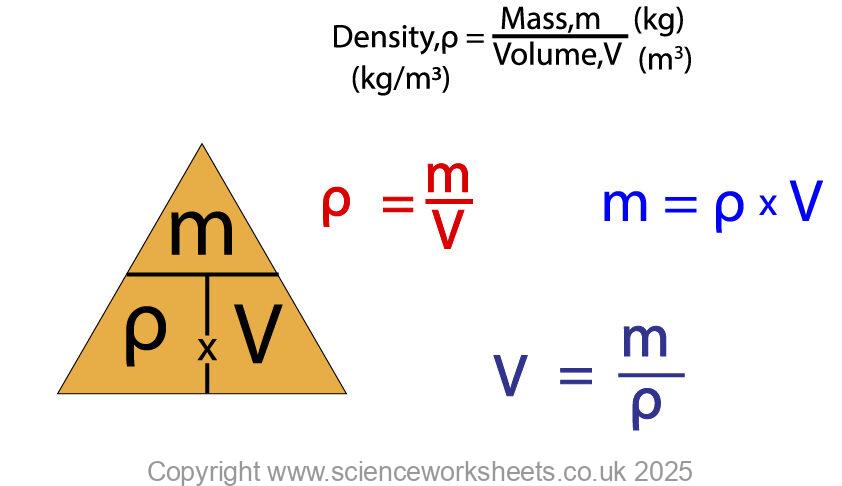AQA GCSE Measuring Density(Physics)
Density
Density is the amount of mass per unit volume.

Measuring the density of a cuboid, or a regular shaped solid.
1.Record the mass of the object using a balance

2. Measure the dimensions of the object using a ruler, micrometer or vernier callipers.
3.Use the dimensions to calculate the volume of the regular shaped object. In the case above the cuboid volume is obtained by length x width x depth
4. Calculate the density using the formula density = mass/volume
Measuring the density of an irregular shaped solid.
1.Record the mass of the object on a balance
2. Fill a eureka can with water to the spout, place an empty measuring cylinder below the spout.

3. Lower the object carefully into the water.
4. Once the displaced water has stopped flowing into the cylinder, measure the volume of water in the cylinder. Volume of displaced water = volume of object

5. Calculate density = mass/volume
Measuring the density of a liquid.
Method
1.Record the mass of an empty beaker on a balance.

2. Take the beaker off of the balance. Use a measuring cylinder to measure a known volume of liquid, then pour the liquid from the cylinder to the beaker. Record the volume for later.

3. Now the beaker contains the liquid, use the balance to obtain the mass of the beaker and liquid.

4. Mass of the liquid can be calculated by subtracting these two masses.
Mass of liquid = 80g-50g = 30g
5. Calculate density = mass/volume
Practice Questions
1.State which of the three methods above you would use to measure the density of a matchbox.
2. State which method you would use above to measure the density of a crystal with sides of different length
3. Billy had a piece of wood which had an irregular shape. He wanted to calculate its density. So, he used the method for an irregular shaped solid. However, his teacher said that his results were not correct. Suggest a reason why his results were not correct.
Absorption and Emission of EM Radiation
JJ Thomson and Plum pudding model
Ernest Rutherford and the Nuclear Model
Niels Bohr changing the Nuclear Model
Discovering the Proton and Neutron
Measuring radiation from radioactivity
Radiation types and properties
Random nature of radioactive decay
Radioactive contamination or irradiation
Hazards of contamination and irradiation
Studies on the effects of radiation on humans
Different half lives of radioactive isotopes
Nuclear Fission Chain Reaction
Writing nuclear fission equations
Drawing ray diagrams for a concave lens
Drawing Ray Diagram to produce a virtual image for a convex lens
Drawing ray diagram to produce a real image for a convex lens.
Specular and Diffuse Reflection
Seeing Coloured Objects Part 2
Viewing objects through coloured filters
Transparent, Translucent and Opaque